I
Sooner Survey: Volume 35 No. 2 | April 6, 2023
By Pat McFerron, President
Cole Hargrave Snodgrass & Associate
![]() @McFerron
@McFerron
One thing that most voters agree upon is that Donald Trump is a unique political figure. While many point to his style as what makes him unique, the coalition he has built is also a bit unusual. Trump’s coalition of populists and conservatives has created, or at least exacerbated, divides within the Republican party that are generally seen along income and geographic lines.
When examining Oklahoma voters of all parties, Trump has seen his numbers drop since the 2020 presidential election that saw him carry all 77 Oklahoma counties and achieve support from more than 65% of Oklahomans. Just before that election, our polling showed Trump with a favorable rating of 66% and an unfavorable rating of 32%. Today those sit at 50% favorable, 47% unfavorable, a net change of 31-points. (In comparison, Joe Biden’s numbers have also deteriorated, but not at that rate, he is now a 30% favorable / 65% unfavorable and his high water mark was 35% favorable / 60% unfavorable when he took office in early 2021.)
The most interesting aspects of Trump, however come when looking at how Republicans view him. Overall, 70% of Oklahoma Republicans have a favorable impression of the former President and just over a quarter (26%) have an unfavorable impression of him. Despite the 70% favorable rating, only 38% will commit to voting for him in an upcoming primary and 51% commit to other possible candidates. Rural Republicans are more supportive (43% committing to Trump, 48% to another candidate) than are those in the two metro regions (32% committing to Trump, 54% to another candidate). We also see a significant income difference. Among the 23% of Republicans in households earning less than $50,000 a year, 38% commit to Trump, but with the 32% above $100,000, his support drops to 25%. Only 18% of Republicans under the age of 45 commit to Trump, while 33% of those over that age do so.
Trump’s strength, however, is also seen when asking an intention question on a Republican primary ballot. When we take the names of other candidates away and just ask for intention on Trump, 60% of the state’s Republicans indicate they would definitely (30%) or probably (30%) vote for Trump. While below his favorable rating, this is higher than one would expect given his support on the named ballot. At this time only 18% of Oklahoma Republicans are definitely against Trump in a primary while 19% are leaning against him.
When looking at those who support non-Trump candidates on the ballot test, we do see some alignment. For example, 38% of those who commit to Florida Governor Ron DeSantis say they will probably vote for Trump and only 22% say they definitely will not vote for the former President. Nicki Haley has the opposite alignment with 79% of her voters saying they are disinclined to vote for Trump and only 16% would consider voting for him. Those supporting other tested names of Ted Cruz, Mike Pence, and Mike Pompeo are more evenly divided with between 39% and 46% saying they would at least consider voting for Trump.
In what some might perceive to be a dysfunctional relationship between Trump and Republicans, one cannot ignore the impact of a third-party, Joe Biden. While 60% of Republicans would at least consider Trump, and 38% commit to him in a named ballot, only 25% say keeping the party aligned with Trump is more important than defeating Biden. Fully 65% of all Republicans say it is more important to nominate a Republican who can win the presidency than it is to nominate someone aligned with Donald Trump. This number is strong among all age, income, and various demographic groups, though there is a bit of an ideological edge. Among the 47% of Republicans who self-describe themselves as “very conservative” 35% want loyalty to Trump and 57% want to beat Biden. When moving to the 35% who adopt the “somewhat conservative” moniker, only 20% want alignment with Trump and 72% want someone who can beat Biden.
Obviously, a lot can happen between today and Oklahoma’s Republican presidential primary almost a year from now. The key for Trump will be to convince voters that he could defeat a re-nominated Biden. For non-Trump candidates, they will need to see if they can hold together a fragile coalition of those against Trump and at least a handful of Trump admirers because the anti-Trump forces within the state’s Republican party electorate is not enough to defeat Trump alone.

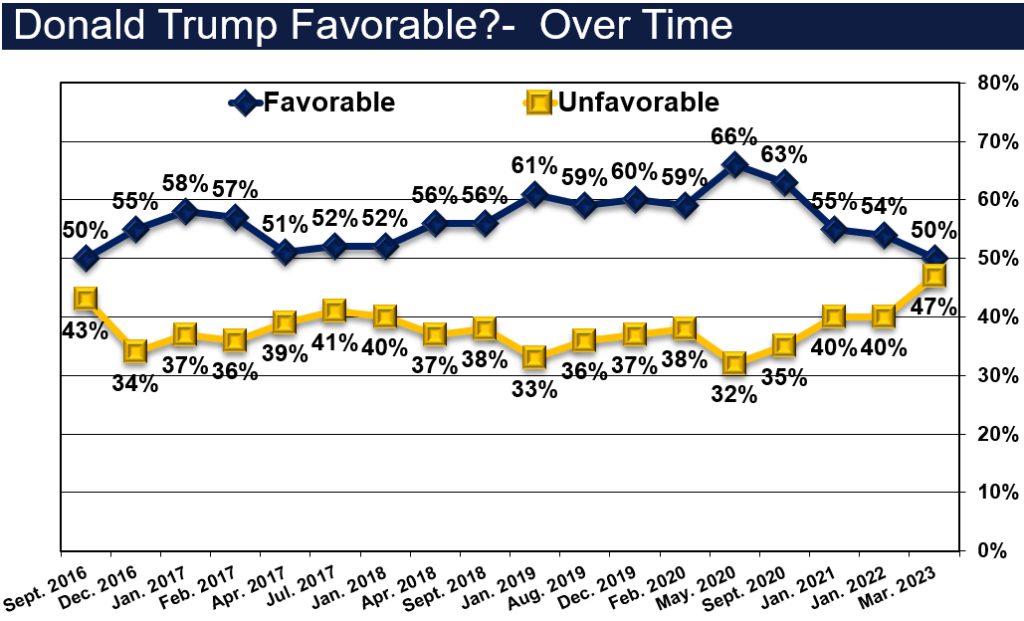
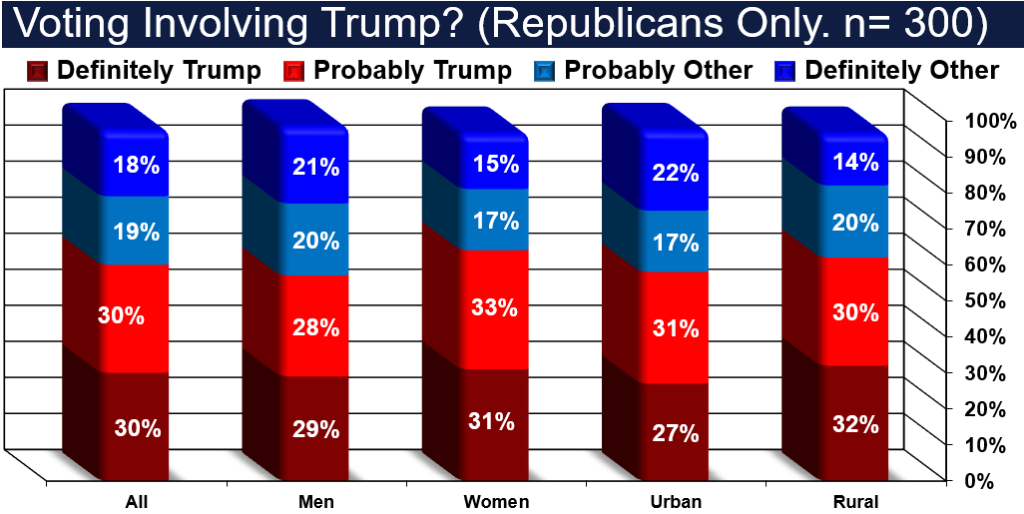
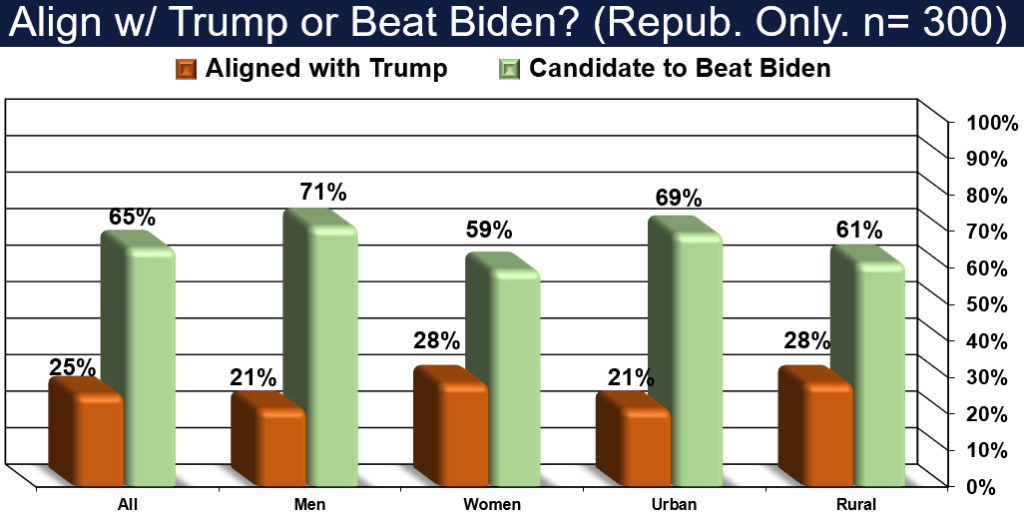

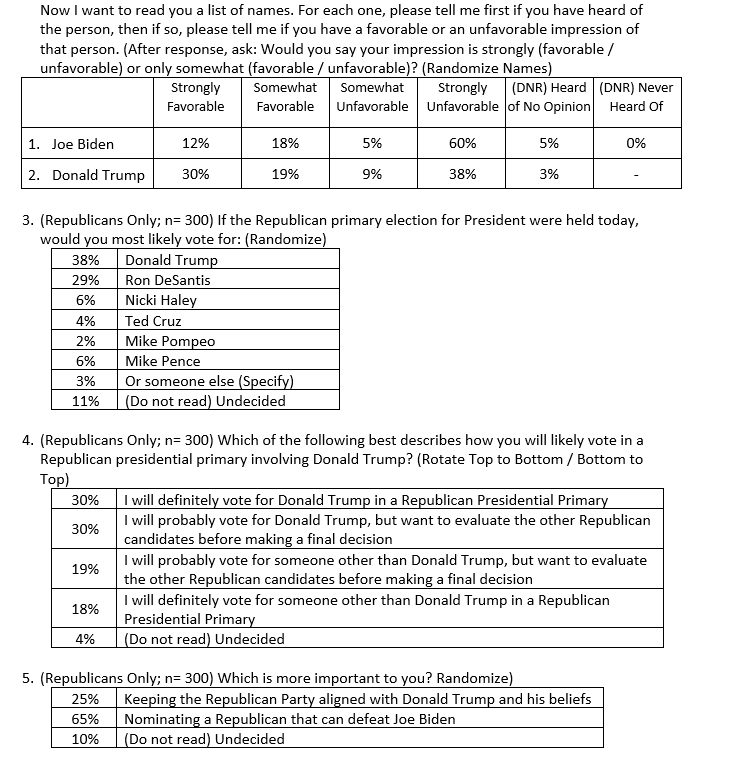


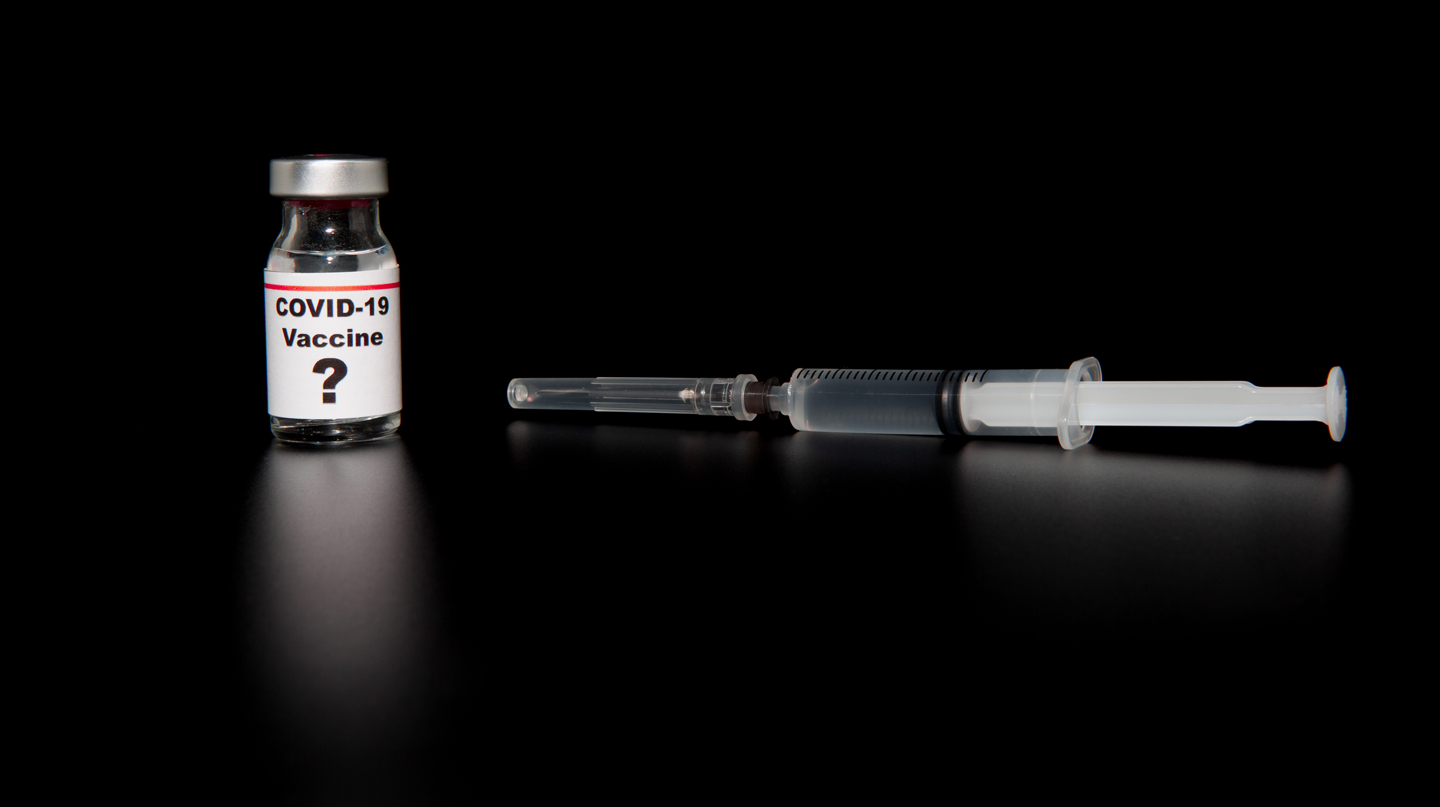

Recent Comments